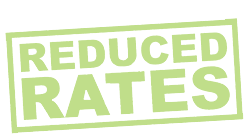2024 brings opportunity to those looking to buy their first home, upgrade to their dream home, buy a cottage or rental property. But financial markets and mortgages have become ever more complex.
This guide aims to simplify your mortgage financing search, by boiling down and efficiently providing you with the most critical 20% of the information, needed to ask the right questions, compare options and confidently close your mortgage on your property.
Following the 80/20 principle, you’ll learn 80% of what you need to know from this guide. The rest requires a personalized discussion based on your unique situation. We encourage you to contact us at Altrua Financial for a free, no obligation pre approval. You’ll get maximum affordability, questions answered and personalized rate quotes for the best mortgage rates in Canada.
What Mortgage Approval Fundamentals Apply to Every Purchase?
The following 2 FAQ style dropdown pannels contain the mortgage approval information that will apply to pretty much any property purchase in Canada. They are designed to be read in about 1-2 minutes each and are a good foundation of knowledge. From here the guide is split into sections that focus on different application types and education resources.
The 4 Pillars of a Mortgage Approval
These 4 areas of down payment, credit score, income and property type encapsulate almost every aspect of a mortgage approval. There are endless differences and combinations between these categories that affect the mortgage approval. Generally, where all 4 are strong, the lowest mortgage rates apply. However, approvals are also possible in situations where there is strong down payment, but less provable income or credit.
The Pre Approval Process
The process below is an overview of what most buyers will experience when purchasing a property. At Altrua Financial, we break down each step and follow quality control procedures that avoid hiccups/issues later in the process and allow for confidence in the transaction. This high standard of service can only be had with a conversation that focuses on your unique situation, often in as little as 10 – 20 minutes.

Brent Richardson
Principal Mortgage Broker/ Owner, Certified Financial Planner (CFP), BA (Hons.)
- 16 + years of industry experience with over 1800 mortgage transactions including 350+ first-time buyer mortgage approvals.
- Specialized knowledge for the most advanced and specific applications.
- Certified Financial Planning (CFP) designation to establish unique relationships focused on mortgage freedom, and financial growth.
- Best Rate Guarantee
Mortgage Affordability Calculator
Calculator Tips (1) Enter one of Alturas Best Mortgage rates (2) Customize down payment (3)
Altrua’s Best Mortgage Rates
What Type of Purchase Are You Making?
Upgrading to Dream Home
Seeking an Alternative Mortgage
Getting Pre Approved
We learn to walk before we run. Going from a mortgage pre approval, to a full approval is no different. Here we review how a pre approval works, how to set up the pre-approval for maximum reliability, stronger offers on homes, and the most savings on rate.

First Time Buyer Incentives and Strategies
If you have income, credit and a down payment, buying your first home is within reach. It’s definitely possible but with higher rates making it harder to qualify for a mortgage, first time buyers need access to every incentive and strategy possible.
See the 10 best First Time Buyer Incentives and Strategies available in Canada

How to Get the Best Mortgage Rate: The Ultimate Guide
It’s why we got started as Mortgage Brokers: To offer you the absolute best rates in Canada. In this highly comprehensive guide, we show you how to get the lowest rate but also how to decide on the best term, and best small print features and flexibilities – all with the single purpose on helping you save the most on your financing.

Down Payment
Looking for some additional information on the specifics of the down payment? Drill into down payment details with this short guide.

Gifted Down Payment and the Gift Letter
Considering a gifted down payment? This short article on gift letters includes everything you’ll need to know.

Lower Down Payment CMHC and Mortgage Default Insurance
Planning on less than 20% for a down payment? This short article on CMHC Default Insurance includes strategies to save on this cost.

Cash Back Mortgages: Pros and Cons
Noticing cashback offers in the market and wondering if there’s a catch? As you probably guessed there is no free money. See if a cash-back mortgage might be right for you.

Mortgage Stress Test
The mortgage stress test affects all applicants and reduces maximum approval levels by over 20%. Learn more about the stress test and how you can potentially reduce its impact.

Purchase Plus Improvements Mortgage
Get the funds to update your new home, included in your mortgage. One of the most opportunistic and underutilized mortgage programs in Canada.

New to Canada Mortgage Program
New to the country without 2 years of established credit, and looking to buy a home? There are various programs and opportunities to help you purchase sooner at the lowest market rates.

Self Employed Mortgages for First Time Buyers
Own your own business and looking to qualify at the lowest market rates? Discover the most essential self-employment mortgage concepts here that will help you to optimize your approval.

Approvals for those with Lower Credit
Has your credit taken a hit and you’re looking to buy your first home? The credit system is designed to rebound fairly quickly and its not a matter of if but when you will get approved.

Mortgage Term: The period of time that you are negotiating your rate, and mortgage contract for.
For example, a 5 year fixed term will hold your rate for 5 years. The provisions of the mortgage contract will also apply for 5 years. Then when the 5 year term is over, the mortgage renews and a new term is negotiated. The new term can be with the same lender, or lenders can be switched if there is a better offering with a different lender.
The term can be between 1-10 years, and be fixed or variable.
Amortization: The longer period of time that your payment is based on.
For example, it is common for a mortgage to start with a 25 year amortization. Even though your rate may be based on a 5 year term, the payment is calculated over 25 years in this case. This longer payoff period helps to keep payments more manageable. If a mortgage starts with a 25 year amortization, then after 5 years of mortgage term, the remaining amortization will be 20 years. Therefore, several terms are usually negotiated before the mortgage is paid off.
The fixed Vs variable rate question is one of the biggest in the world of mortgages. What does this mean?
Fixed rate mortgages have a fixed payment and a fixed rate for the term. When the Central Bank of Canada moves rates up and down over the years, these changes do not affect the fixed rate term. You are guaranteed the rate will not change throughout the term.
The fixed rate is popular because it provides stability and consistency in payments. This can help for budgeting purposes and provides peace of mind for many borrowers. The standard fixed rate is 5 years however shorter terms can be strategically selected for renewing sooner at potentially lower rates.
Variable rate mortgages will change or ‘float’ with changes made by the Central Bank of Canada. After the mortgage closes, your interest costs will move up and down over the term.
The variable rate may appear less desirable, however, over the past 50 years the variable rate has generally shown to cost less than the fixed rate terms. Although savings are not guaranteed and there will be more volatility with the rate over the term, it can lead to interest savings – especially when rates are projected to drop.
The down payment is the portion of the home purchase that isn’t mortgaged. It’s your ‘skin in the game’.
In Canada, the minimum down payment is 5% – however, this can be gifted by immediate family or potentially loaned if needed.
Any down payment of less than 20% must be ‘insured’ by the Canadian Mortgage and Housing Corporation (CMHC), or another mortgage insurer. The CMHC insures the lender incase payments have stopped and the lender is in a situation of losses, especially if home values have dropped as well. In this case the CMHC would take over the mortgage from the lender. There is a one time CMHC or ‘premium’ that is added to the mortgage. The CMHC fee is not a monthly fee and does not repeat on each term.
At 20% down payment there is no CMHC fee because this is deemed to be a lower risk for the lenders and the financial system as a whole.
The purpose of the credit score is to provide a profile of past behaviour with credit management and making payments.
The rationale is that past behaviour is a good indication of future behaviour. So if there is a good history of making loan and credit card payments on time, then lenders can be comfortable that this pattern will continue.
This is not to say that credit behaviour can’t change, and there are many instances where a specific period in life prevented on time payments. However for an extended period after this period, on-time payments have been consistently demonstrated.
The credit score itself ranges from 450 – 900 and typically lenders will need to see a score in the 670 -700 range or higher for the lowest rates.
Find out more about credit scores in our pre approval guide.
